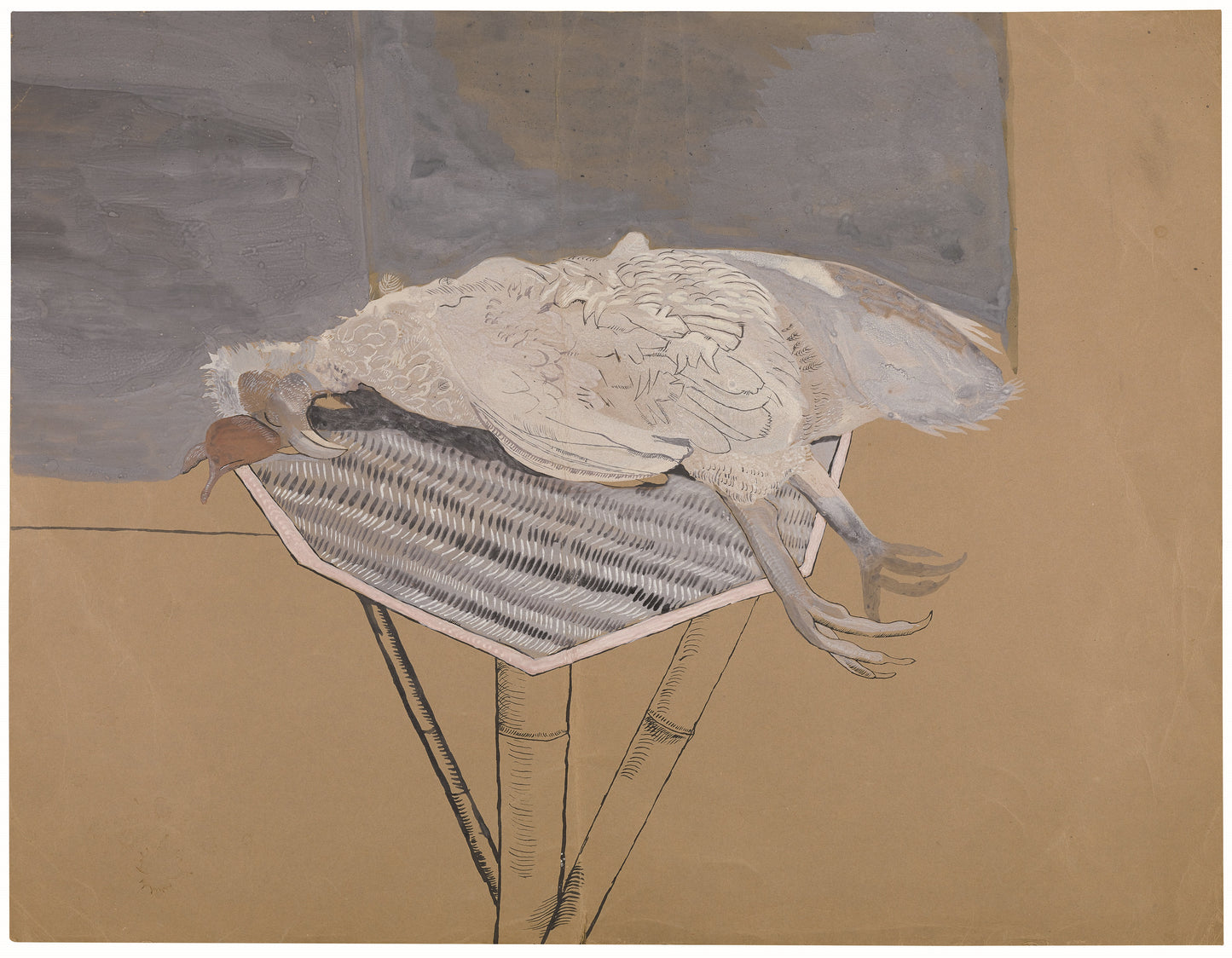Lucian Freud (1922–2011) is widely regarded as one of the greatest figurative painters of the 20th century. Renowned for his unflinching studies of the human form, Freud brought a psychological intensity to portraiture and still life that redefined postwar realism. A grandson of Sigmund Freud, his penetrating gaze and visceral brushwork laid bare the vulnerability of flesh, identity, and mortality. Museums have positioned Freud as a bridge between British postwar realism and a deeper European tradition of anatomical scrutiny and existential depth, linking him to artists like Egon Schiele and Francis Bacon.
Lucian Freud’s Dead Bird on a Bamboo Table is a rare and poignant early work, created around 1944, when Freud was just entering the public eye as a prodigious young draughtsman. Composed in watercolor, gouache, and ink, the image is both delicate and unsettling, precise in detail yet charged with psychological tension. It offers a glimpse into the artist’s lifelong preoccupation with the fragility of the body and the blunt facts of mortality.
This early still life reflects a moment before he fully embraced impasto oil painting, but already signals his singular ability to fuse intimacy and clinical observation. The dead bird, rendered with forensic clarity, is staged on a decorative bamboo table, juxtaposing life’s ornamental surface with its abrupt cessation.
Dead Bird on a Bamboo Table holds historical and critical significance within Freud’s early body of work. It prefigures the intense psychological realism that would become his signature and reveals an artist already deeply attuned to the existential tensions of his time. Works from this period are exceedingly rare and highly valued, particularly those that presage the darker, flesh-heavy portraits of his mature style.
This piece will be included in the forthcoming Lucian Freud catalogue raisonné of drawings, currently being prepared by Toby Treves and Catherine Lampert—cementing its place in the permanent record of Freud’s uncompromising and psychologically charged practice. Freud's works are held in the most prestigious collections worldwide, including Tate, MoMA, the Met, and Centre Pompidou.


